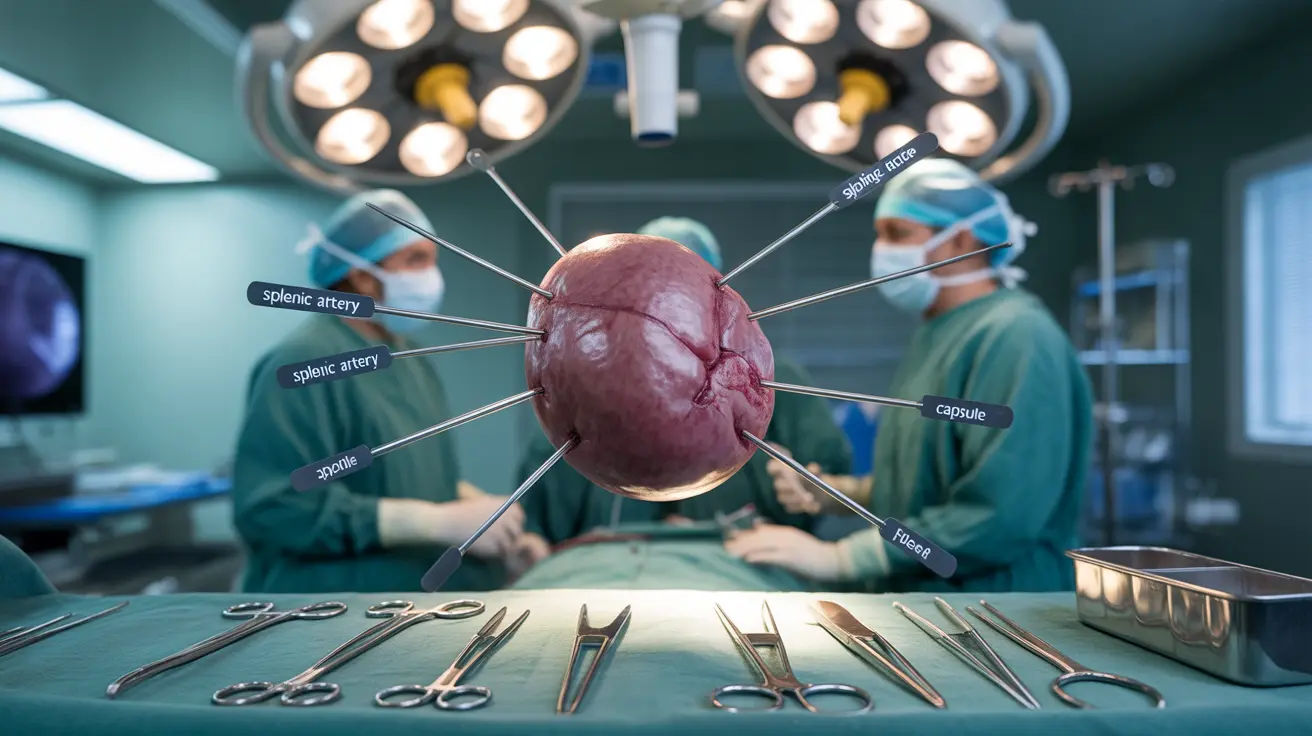Spleen removal surgery, medically known as splenectomy, is a significant surgical procedure that involves removing the spleen, an important organ in your immune system. While the thought of living without your spleen might seem daunting, understanding the procedure, recovery process, and long-term considerations can help you make informed decisions about your health.
This comprehensive guide will explore the various aspects of spleen removal surgery, including why it might be necessary, different surgical approaches, recovery expectations, and essential post-surgery care requirements.
Reasons for Spleen Removal Surgery
Doctors may recommend spleen removal surgery for several compelling medical reasons:
- Traumatic injury causing splenic rupture
- Certain blood disorders like idiopathic thrombocytopenic purpura (ITP)
- Specific types of cancer affecting the spleen
- Splenic cysts or tumors
- Certain inherited blood conditions
The decision to remove the spleen is never taken lightly, and your healthcare team will carefully evaluate your specific situation before recommending this procedure.
Surgical Approaches and Techniques
Laparoscopic Splenectomy
This minimally invasive approach involves making several small incisions in the abdomen. The surgeon uses specialized instruments and a camera to remove the spleen through these tiny openings. This technique typically results in less post-operative pain and faster recovery.
Open Splenectomy
Traditional open surgery requires a larger incision in the abdomen. This approach might be necessary for patients with very enlarged spleens or complicated medical conditions. While recovery may take longer, it's sometimes the safest option for certain patients.
Robotic-Assisted Surgery
This advanced technique combines the benefits of laparoscopic surgery with enhanced precision through robotic assistance. The surgeon controls robotic arms from a console, offering superior visualization and control during the procedure.
Recovery Process and Timeline
Recovery from spleen removal surgery varies depending on several factors:
- Type of surgical approach used
- Overall health condition
- Age
- Presence of other medical conditions
- Compliance with post-operative care instructions
Most patients spend 2-7 days in the hospital following surgery. Full recovery typically takes 4-6 weeks for laparoscopic procedures and 6-8 weeks for open surgery.
Long-Term Health Considerations
Living without a spleen requires certain lifestyle adjustments and ongoing health considerations:
- Increased susceptibility to certain infections
- Need for regular vaccinations
- Importance of prompt medical attention for fevers
- Possible dietary modifications
- Regular health check-ups
Prevention and Protection Measures
Before and after spleen removal surgery, several preventive measures are crucial:
Required Vaccinations
- Pneumococcal vaccine
- Meningococcal vaccine
- Haemophilus influenzae type b vaccine
- Annual flu shots
Daily Precautions
Maintaining good health after surgery involves:
- Regular hand washing
- Avoiding contact with sick people when possible
- Wearing medical alert jewelry
- Keeping up with recommended vaccinations
- Informing healthcare providers about your splenectomy
Frequently Asked Questions
- What are the main reasons a doctor would recommend spleen removal surgery?
Doctors typically recommend spleen removal surgery for severe trauma, certain blood disorders, splenic tumors or cysts, and specific types of cancer affecting the spleen. The decision is based on careful evaluation of the patient's condition and when other treatment options have been exhausted or aren't suitable.
- What is the difference between open, laparoscopic, and robotic spleen removal surgery?
Open surgery involves a large incision and direct access to the spleen. Laparoscopic surgery uses several small incisions and special instruments, while robotic surgery enhances laparoscopic techniques with robotic precision. Each approach has specific benefits and is chosen based on individual patient factors.
- How long does it take to recover after spleen removal surgery, and what factors affect recovery time?
Recovery typically takes 4-8 weeks, depending on the surgical approach. Laparoscopic surgery usually allows faster recovery (4-6 weeks) compared to open surgery (6-8 weeks). Factors affecting recovery include age, overall health, surgical technique, and adherence to post-operative instructions.
- What are the risks and long-term health considerations after having the spleen removed?
Long-term considerations include increased susceptibility to certain infections, need for regular vaccinations, and importance of prompt medical attention for fevers. Patients must maintain vigilant health monitoring and follow preventive care guidelines.
- What vaccinations or preventive measures are needed before or after spleen removal surgery to reduce infection risk?
Essential vaccinations include pneumococcal, meningococcal, Haemophilus influenzae type b, and annual flu shots. Preventive measures include regular hand washing, avoiding sick contacts, wearing medical alert jewelry, and maintaining regular medical check-ups.




